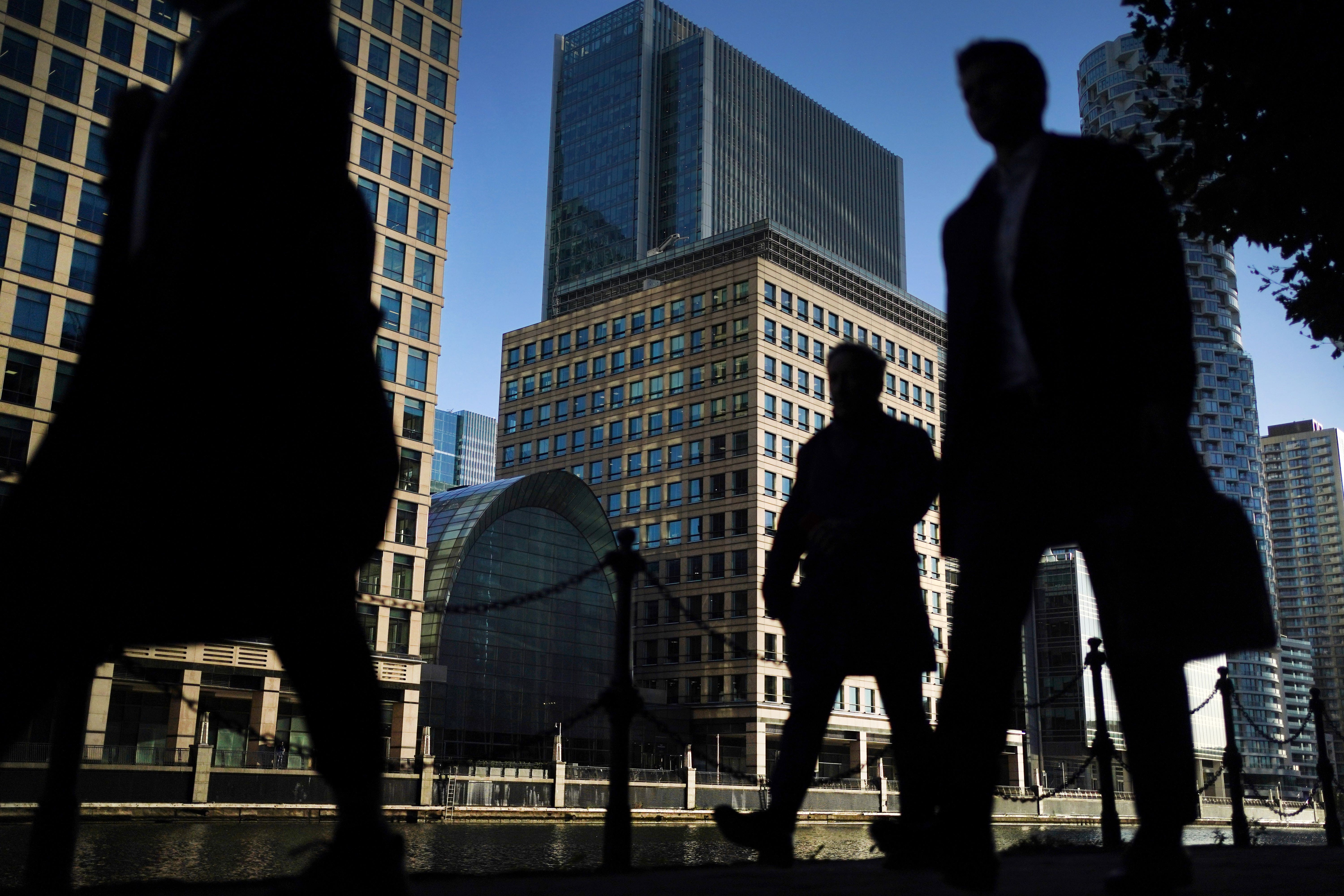UK takes step away from recession as economy grows for second month in a row
Jeremy Hunt says figures are ‘welcome sign the economy is turning a corner’
Your support helps us to tell the story
From reproductive rights to climate change to Big Tech, The Independent is on the ground when the story is developing. Whether it's investigating the financials of Elon Musk's pro-Trump PAC or producing our latest documentary, 'The A Word', which shines a light on the American women fighting for reproductive rights, we know how important it is to parse out the facts from the messaging.
At such a critical moment in US history, we need reporters on the ground. Your donation allows us to keep sending journalists to speak to both sides of the story.
The Independent is trusted by Americans across the entire political spectrum. And unlike many other quality news outlets, we choose not to lock Americans out of our reporting and analysis with paywalls. We believe quality journalism should be available to everyone, paid for by those who can afford it.
Your support makes all the difference.The UK has taken another step away from the recession that plagued it at the tail end of last year after the latest figures revealed the economy grew again in February.
Gross domestic product (GDP) rose by 0.1 per cent in February, according to the Office for National Statistics. It also revised the previous estimate for January from 0.2 per cent to 0.3 per cent growth.
The production side of the economy was strong, contributing the most to the UK’s overall growth as output from the sector rose 1.1 per cent in February, compared to a 0.3 per cent fall in January.

“The economy grew slightly in February with widespread growth across manufacturing, particularly in the car sector,” said ONS director of economic statistics Liz McKeown. “Services also grew a little with public transport and haulage, and telecommunications having strong months.
“Partially offsetting this there were notable falls across construction as the wet weather hampered many building projects. Looking across the last three months as a whole, the economy grew for the first time since last summer.”
Chancellor Jeremy Hunt described the latest figures as a sign that the economy is “turning a corner”, saying: “These figures are a welcome sign that the economy is turning a corner, and we can build on this progress if we stick to our plan.
“Last week our cuts to National Insurance for 29 million working people came into effect across Britain, as part of our plan to reward work and grow the economy.”
Sanjay Raja, Deutsche Bank’s chief UK economist, also described the figures as indicative of a “turning point”.
“Looking ahead, we think the UK economy is at a turning point following on from its short and shallow recession last year,” he said.
He added that he believed GDP would continue to pick up through the year, rising by 0.5 per cent. He suggested next year the rise could be as high as 1.5 per cent.
The construction sector output was one of the few that fell, according to the latest report, by 1.9 per cent. but The ONS cited “anecdotal evidence” that heavy rainfall delayed planned work and decreasing output in February.
Overall, the economy appears to be putting the 2023 recession behind it in the new year. A recession is defined by at least two quarters in a row where the economy contracts, as it did in the second half of 2023.
However, after the January and February readings showed growth, if the whole first quarter of 2024 is to be negative then March must show a drop of 1.29 per cent or more.

Join our commenting forum
Join thought-provoking conversations, follow other Independent readers and see their replies
Comments